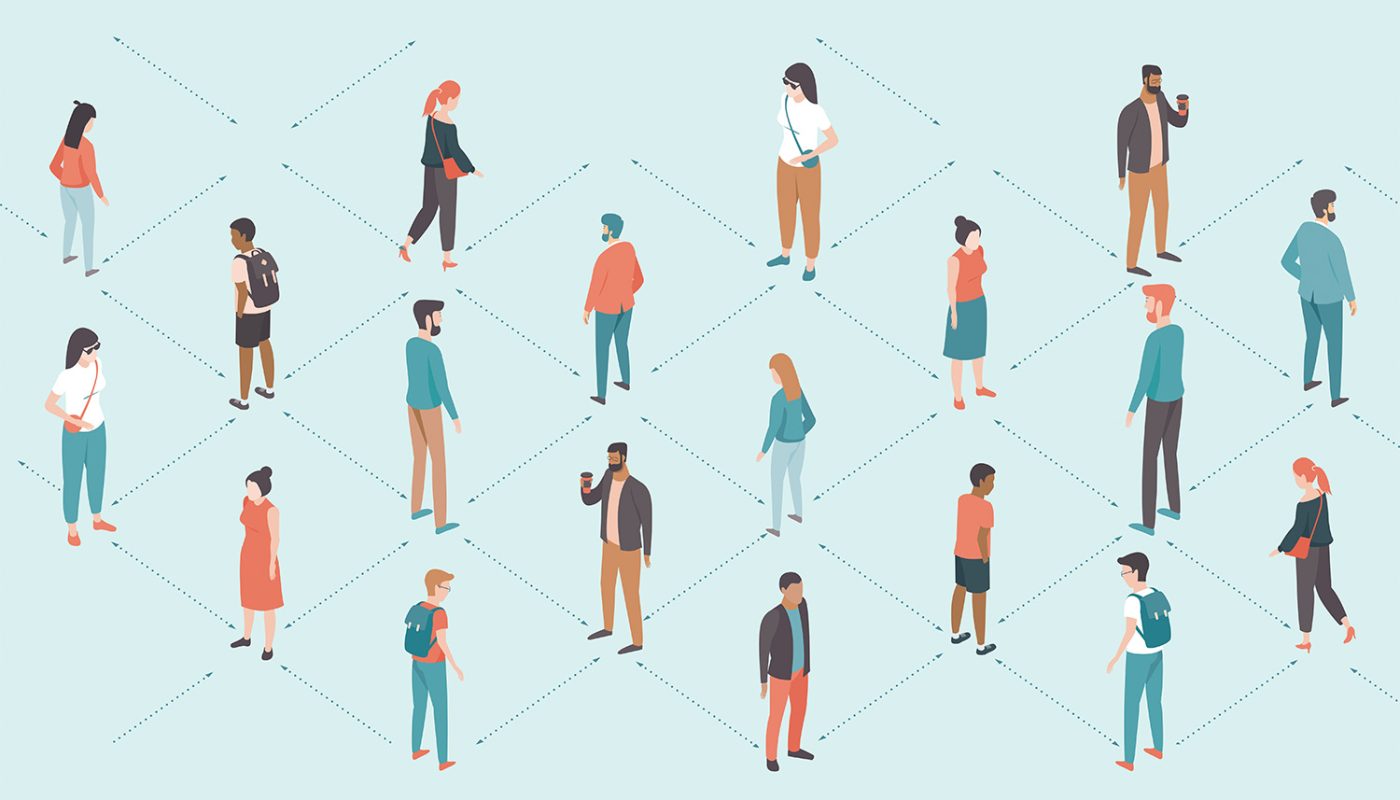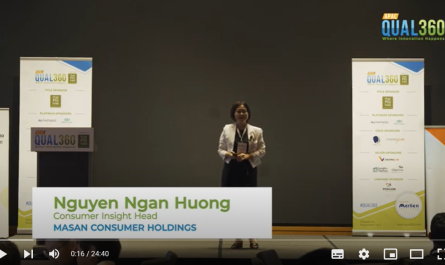Online ethnography at Leifheit
Leifheit and Happy Thinking People (H/T/P) embarked on a 100% online ethnography project at the height of the Corona pandemic. Barbara von Corvin, Johannes Pirzer and Thomas Diehl reported on this project during Qual360 Europe – in one of the most highly rated presentations.
All online qualitative methodologies have gained momentum and acceptance during the Corona pandemic, dispelling pre-existing doubts over issues of reliability and consistency of results. Digital qual approaches consistently deliver a cost- and time-effective alternative to offline face-to-face (F2F) qualitative research and may evolve to become the new normal.
Ethnographies – or in-homes – in particular were traditionally seen as only possible F2F. A major question over a potential switch to digital ethnos existed: was online able to deliver equally inspiring and granular insights as F2F – could we get close from a distance?
Happy Thinking People’s 100% online case study executed successfully with Leifheit in 2020 at the height of the first wave of the Corona pandemic delivers a strong YES as an answer. Online ethnography not only delivers excellent insights, it also adds benefits in terms of comfort for participants, time and cost effectiveness as well as more closeness than expected.
The approach works well across all age groups including those aged 60+. Happy Thinking People and Leifheit can envisage it becoming the new normal in ethnographic insights in future.
The challenge of online ethnography
Leifheit’s slogan “how housework’s done today” summarizes the company guideline to simplify everyone’s daily life through the development of modern, innovative as well as easy and convenient household products. Their focus for the current study: identify relevant consumer insights and needs which inspire the ideation of breakthrough solutions with huge consumer relevance and high satisfaction potential.
In addition, Leifheit wanted to use trends as a springboard to ensure a high resonance with various target audiences. One of these trends was the ageing society. The study was originally planned for spring 2020 – COVID was peaking, and all of Europe went into lock-down. Face-to-face was out of the question, so a new digital approach was necessary – with the following key challenges:
- How can we best replicate the sense of closeness and contextual richness of validated F2F in-home approaches?
- Can we discover unknown insights and ensure an at least equivalent quality when we can’t observe the users in-person?
- How can we ensure a full integration of participants aged 60+ in the study design?
The approach
H/T/P’s hypothesis was that they could deliver excellent ethnographic insights digitally using a modified research design – and building on their extensive experience with online insight communities. The design was 100% digital – involving two steps.
- Step 1: 10 days Online Insight Community with 36 participants overall, divided into three subgroups.
- Step 2: 12 Screen-to-Screen Interviews, one hour each for in-depth subsequent explorations.
In the Online Insight Community, the subgroups were allocated appropriate cleaning tasks and kept a cleaning diary. They uploaded short videos and commented on them. To keep interest high and stimulate discussion, participants within the subgroups saw each other’s posts and shared thoughts. Four participants per subgroup were selected for Screen-to-Screen Interviews. Here they gave video tours of their homes and shared their cleaning activities, needs and requirements.
The output
- Digital truly allowed depth from a distance. Here participants can be seen from a mere 0.5 meters, without having to engage in any social distancing.
- Whilst researchers could not experience the same unique atmosphere with all their senses like in traditional in-homes, the approach still provided closeness to the participants as researchers were right with them in their homes!
- Participants feel more comfortable without the presence of observers in their homes.
- Granularity and depth of insights was equal to F2F – the outputs far exceeded Leifheit’s expectations.
- The variety of insights in different fields regarding household cleaning was tremendous and very enlightening.
- In an online setting more respondents can participate. In F2F in- home the number of visitors is limited to a maximum of 5 or 6.
Conclusions
Overall, the approach delivered equivalent results to classical in-home in-depth interviews plus the following benefits:
- A high involvement of participants.
- A high involvement of the Leifheit team.
- Even more comfort for participants.
- Much less time-consuming and clearly more cost-effective.
And what about the initial challenges?
- Depth and density of valuable output far exceeded the expectations.
- The variety of insights was tremendous.
- 60+ could easily adapt and use the online platform. Even though most of the participants used an online insight platform for the first time.
Overall, online ethnography is a good candidate to help define the “New Normal” in qualitative consumer research studies. Especially, but not only when doing research in multiple countries. Even when there are no limitations due to COVID-19: not having to travel and getting an equally good result.
Whilst working only in a virtual space, H/T/P was able to build an emotional connection to the participants, their homes and their needs. Sharing seemingly everyday problems such as cleaning the house was perceived as entertaining. During the pandemic it provides a welcome distraction with a high sense of community.
To watch the full presentation, visit the Qual360 video library containing hundreds of case studies from our Qual360 events. Find additional case studies and the latest information about upcoming Qual360 events at https://qual360.com/. Your next chance to join Qual360 live is coming up on October 20&21 with our Qual360 Europe edition (live in Berlin and online)!
Sign up to our Email alerts for news, updates and special offers!
Effective Insight Communication Remotely: Making Qual Insight Actionable











 by
by 

